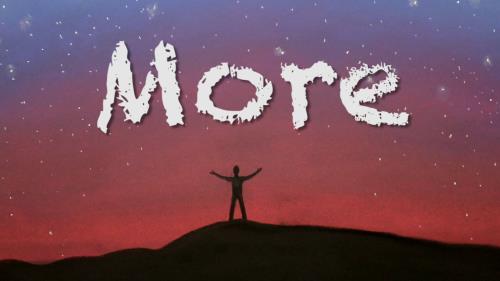-
Hearing And Doing
Contributed by Rodney Buchanan on Nov 28, 2017 (message contributor)
Summary: To be a genuine Christian we must be intentional about our spiritual lives, we must be consistent, and we must endure.
On February 18 of this year, we heard the disturbing news that Robert Hanssen, a 25-year veteran of the FBI and expert in counterintelligence, had been arrested on espionage charges. He is accused of passing top-secret information to the Soviet Union — and later Russia — starting in 1985. Federal agents apprehended him at a Virginia park just minutes after he left a package under a wooden foot bridge, which investigators say was a drop site for delivering secret documents to his Russian handlers. The Washington Post reported Monday that experts were looking closely at government computers at the FBI and State Department to make sure that Hanssen, who is a skilled programmer, did not sabotage them or create vulnerabilities that could allow Russian spies to steal sensitive information while he is jailed. But as the information poured out about Hanssen, we learned that he was also a faithful church member who attended services every week. In addition, he was a member of Opus Dei, a conservative religious order that is strongly anti-communist and stresses moral righteousness.
You have to wonder if Robert Hanssen really heard what was being said at his church as he sat there Sunday after Sunday. And did he not hear what was being said in the religious order of which he was a part? How is it that some people hear the truth over and over, but do not put it into practice? Robert Hanssen is not alone. There are people like him in churches all over the country. They hear the truth, but they do not do the truth. Jesus said, “In them is fulfilled the prophecy of Isaiah: ‘You will be ever hearing but never understanding; you will be ever seeing but never perceiving’” (Matthew 13:14). We have a serious problem in the church of Jesus Christ. Somehow we have a moral disconnect between faith and action. There is a great chasm between what we say we believe and what we do. We have inculcated the philosophy of the world and accepted it over the teaching of Scripture — without even realizing it.
In the Old Testament hearing was a part of obedience. It was inseparably linked. Shema is the Hebrew word meaning “to hear.” The Old Testament law is encapsulated in what is called the Shema, found in Deuteronomy 6:4-5, “Hear, O Israel: The Lord our God, the Lord is one. Love the Lord your God with all your heart and with all your soul and with all your strength.” This carried over to the New Testament where the Greek word for “obey” is hupakouo. The word for “hear” is akouo, and to really hear is hupakouo, it is hearing that results in obedience. It means that you paid attention to what God was saying. To hear is to do.
Jim Cymbala, in his book Fresh Power, decries how the world has effectively evangelized Christians without their awareness. He cites George Barna’s recent study that regular churchgoers are shockingly similar to the general populace. One example was that 27% of non-Christians purchased a lottery ticket in the past week, and 23% of Christians did the same. Barna gives many such examples of similarities between Christians and non-Christians. We watch the same movies, go to the same places and do the same things. Another research group found that 52% of churchgoers said they never donated time to helping the poor, hungry, sick or those unable to help themselves. Another research group said that 52% of churchgoers never donated time to help the poor, hungry, sick or someone unable to help themselves. I was appalled that the divorce rate is actually higher among Christians. 27% of those claiming to be Christians were divorced, compared to 23% who made no claim to be Christian. I understand that divorce is sometimes unavoidable by a person who does not wish it, but shouldn’t there be a vast difference among Christians in comparison to non-Christians in the area of faithfulness and commitment? Somehow what we say we believe needs to come in line with what we do.
There is a real problem in the church of Christ today. In the book of James, we find several solutions to this problem, and the first is this: If you are going to be a genuine Christian you must be intentional about your spiritual life. John Wesley said, “Do all the good you can, in all the places you can, to all the people you can.” No one ever became a Christian by accident. You have to purposely develop your spiritual life. You have to be intentional about it. You have to spend time working on it. The first thing that James recommends is that we become quiet. He says, “My dear brothers, take note of this: Everyone should be quick to listen, slow to speak” (James 1:19). The reason that most Christians have a dichotomy between what they say and what they do is because they never stop long enough to listen to God. They may be talking to God throughout the day, but there is no quiet time when they stop and listen to him. They don’t sit with the Word of God and let it speak to them. We have many people who say they believe in the Bible who have never read the Bible. Please tell me how you can believe in something you have never read. How would you know whether you believe in it or not? But that takes time. It takes carving out a part of each day. But as you begin to really hear the Word of God it will begin to change you. You have to be a hearer before you can be a doer.

 Sermon Central
Sermon Central



